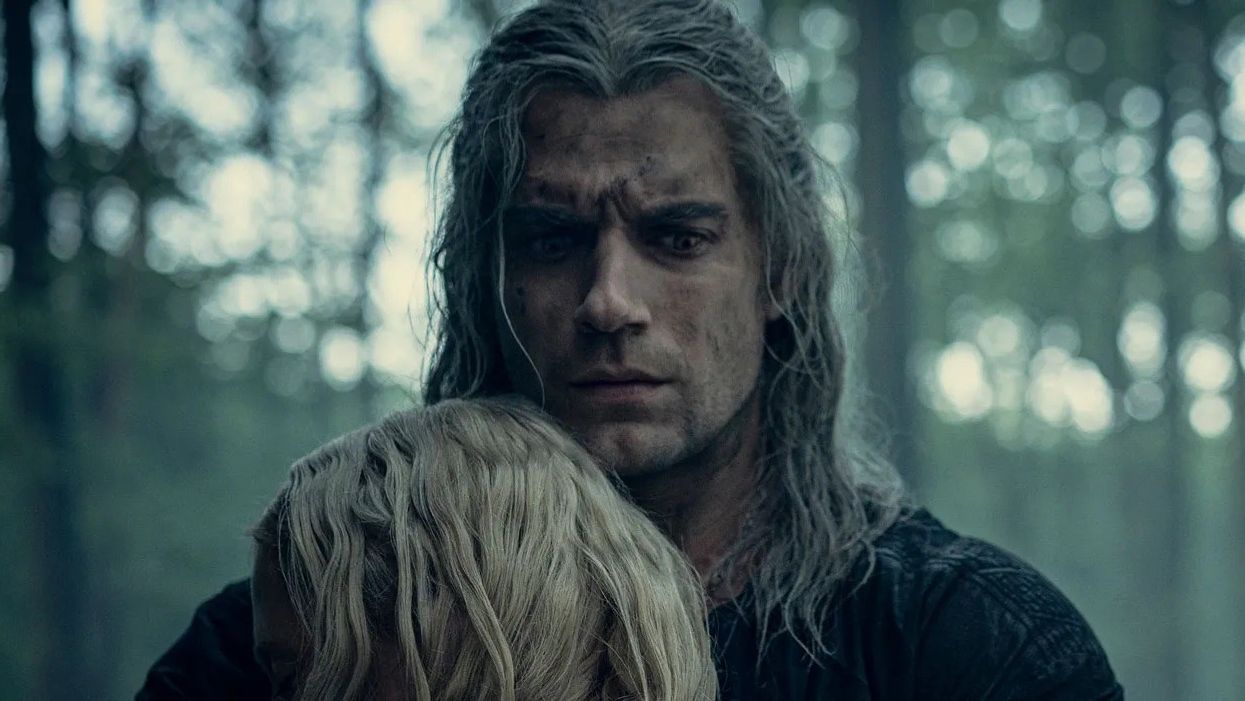Why Netflix's Data Reliance Is a Problem for Creative Decisions
Netflix's creative decisions are heavily influenced by its data, which isn't necessarily a good thing, for several reasons.

Like many of you, I am burnt out on Netflix. It's not that Netflix doesn't create great content, because they do, but they also create a lot of series and films that are very, very similar. I also have a fear of starting a new series, because who knows if Netflix will greenlight another season or not after data doesn't support the financial and creative decision.
The streaming service calls itself “a data-driven company since its inception,” so Netflix sticks to its data-driven philosophy. Unfortunately, that data has become a problem for filmmakers, creative executives, and audiences.
To fully understand the effect of Netflix's data reliance, we have to break down how and why the streaming giant uses the analytics-first philosophy. Three former Netflix executives and creatives spoke to Business Insider about the weaponization and “flawed science” of the streamer’s reliance on data.

How Netflix’s Data Works
Netflix has staffers from the company’s content, strategy, and analysis (CS&A) teams that are assigned to TV and film executive teams.
Netflix’s job listing describes the role as “primarily responsible for deal valuation, programming strategy, performance/audience insight, and competitive analysis.” These researchers help creative executives make decisions on whether or not a project is worth producing and what the company should spend on it.
Unlike most CS&A teams at traditional production companies and Hollywood studios, who decide whether or not to greenlight a show or acquire a film on “a gut instinct,” a former Netflix executive says that the streamer’s CS&A team researches and evaluates whether or not a project should be made, giving them the ultimate power in creative discussions.
“Sometimes it was helpful and sometimes it was totally useless,” a second executive told Insider about Netflix’s analytics. “If something is really unique or a risk, they’re not going to say, ‘Go with God,’ or ‘Take that risk.’ They’ll say, ‘Our data does not support [it].’”
So how does Netflix’s CS&A team break down how it uses “machine learning and statistical modeling” to help content executives make decisions?
According to Netflix’s tech blog, the process includes examining similar shows and movies that have already been released, and then plotting those comps out on a “similarity map” in which “more similar titles appear closer together with respect to a spatial distance metric such as Euclidean distance.”
Audience engagement and completion rates also factor into how the title will perform across other regions of the world. How many viewers will tune into a show has become a crucial component of Netflix’s international ambitions.
“Some of it is a flawed science,” said an insider, who noted that Netflix has evolved its equation over the years. The company shifted from looking at comps among titles it had acquired to comps among titles that were unique and made for the streamer’s platform.

The Pitfalls of Data Dependency
When it came time to renew Bridgertonor The Witcherfor another season, Netflix saw the choice as a no-brainer.
Any other show, however, has an uphill battle to fight if it isn’t a major hit on the platform. A former executive told Insider that a show’s future is still uncertain even if it repeatedly hits Netflix’s Top 10 list. The viewing hours and completion rates have to be considered high enough for the CS&A researchers to recommend renewing.
At Netflix, “the bar is so, so high,” said an executive.
This becomes a problem for particular shows that have smaller audiences but speak to underrepresented audiences.
CS&A researchers and show executives work together to draft renewal proposals for Netflix’s head of U.S. scripted series, Peter Friedlander, and sometimes the head of global TV, Bela Bajaria, but every so often the data scientists need a little convincing from series executives to help a show get a shot at another season.
Pleas from high-profile showrunners or actors can make a difference during this process, winning over the empathy and trust of the CS&A team.

Unfortunately, the streamer’s reliance on data is affecting young creative executives who have not yet developed their own creative judgment and audience sense.
“These streamers don’t have proper training,” said a former insider. “The data is filling the hole of human knowledge and human experience—skills you learn when you come up in a traditional way.”
At the end of the day, humans are deciding on whether or not to greenlight a project. Netflix is reliant on its data, but it is not the only factor in the future of a project. The data cannot decide whether or not something is valuable to audiences. Instead, it highlights what is trending with the vast majority of the streamer’s audience.
Trends are great to study since they show you want audiences’ favor, but trends don’t last, and Netflix has a tendency to oversaturate the market.

What should be considered by the creative team is the importance of representation, small yet dedicated fan bases of shows, and the creative risk that could potentially have a lasting effect on filmmaking.
Young creative executives need to develop skills that are not completely reliant on data. If not, then we as filmmakers, creatives, and audiences will never get to see something completely original and experimental on Netflix, and that would be an ultimate waste of such a big platform.
Let us know what you think of Netflix’s reliance on data in the comments below!
Source: Business Insider











